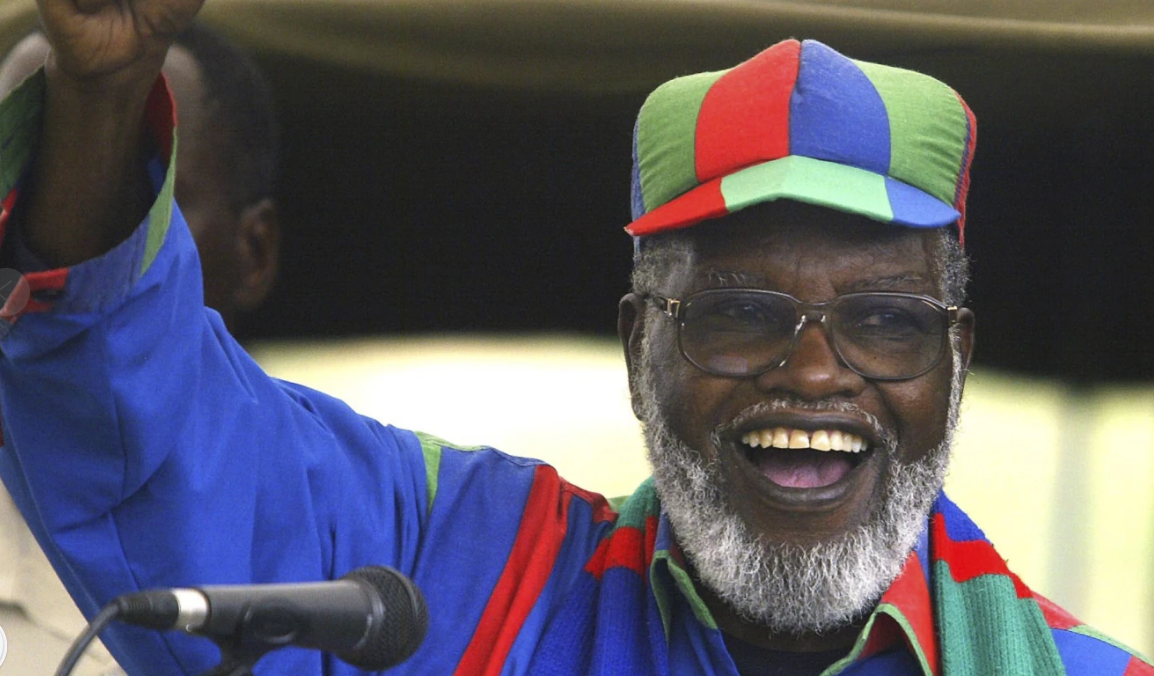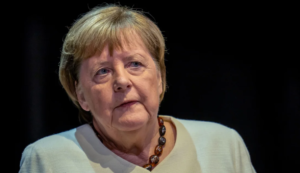Sam Nujoma, the influential freedom fighter who guided Namibia to independence from apartheid South Africa in 1990 and became the nation’s first president for 15 years, has passed away at the age of 95. Nujoma, often referred to as the father of Namibia, died on Saturday night after being hospitalized in Windhoek, the capital of Namibia.
Namibian President Nangolo Mbumba confirmed Nujoma’s death in a statement released on Sunday. Mbumba expressed that the loss had deeply shaken the foundations of the Republic of Namibia. He revealed that Nujoma had been receiving medical treatment and observation for the past three weeks due to health issues but sadly couldn’t recover this time. Mbumba also praised Nujoma for his leadership during the most challenging moments of Namibia’s liberation struggle, highlighting his role in uniting the nation.
Nujoma was part of the final group of African leaders who played pivotal roles in ending colonial or white minority rule in their countries. This group included prominent figures such as Nelson Mandela of South Africa, Robert Mugabe of Zimbabwe, Kenneth Kaunda of Zambia, Julius Nyerere of Tanzania, and Samora Machel of Mozambique.
Nujoma was deeply respected in Namibia, a country with a sparse population and harsh desert landscape, where he was seen as a charismatic father figure. He guided the nation to democracy and stability after enduring a long period of German colonial rule and a tough war of independence against South Africa.
For nearly three decades, Nujoma led Namibia’s independence movement from exile. He returned in 1989 for the country’s first democratic elections and was elected president by the newly formed Parliament in 1990, shortly after Namibia achieved independence.
South African President Cyril Ramaphosa praised Nujoma for his leadership in Namibia’s struggle for independence, saying he stood firm against the overwhelming power of colonial and apartheid forces. Nujoma’s efforts also inspired the anti-apartheid movement in South Africa, contributing to the country’s eventual liberation. South African President Cyril Ramaphosa praised Sam Nujoma for inspiring the Namibian people, noting how his leadership brought pride and resistance despite the country’s small population. Ramaphosa also highlighted how Namibia’s 1990 independence ignited a sense of inevitable liberation for South Africa as well.
Many Namibians credited Nujoma with guiding the country through a process of national reconciliation, particularly after the bitter divisions caused by the war for independence and South Africa’s apartheid-era policies. Under those policies, the country had been divided into ethnically-based regional governments, each with separate systems for education and healthcare for different racial groups.
Even Nujoma’s political opponents, who once labeled him a Marxist and accused him of harshly suppressing dissent during his time in exile, acknowledged his efforts in shaping Namibia’s democratic constitution and involving white businessmen and politicians in the post-independence government.
However, despite his practical approach to building the nation, Nujoma also attracted international attention for his anti-Western rhetoric. In 2000, during a United Nations conference in Geneva, he shocked delegates by claiming that AIDS was a man-made biological weapon. He also made controversial remarks about homosexuality, calling it a “foreign and corrupt ideology” and insulting gays as “idiots.”
Sam Nujoma once banned all foreign television programs in Namibia, arguing that they had a corrupting influence on the country’s youth.
During his time in power, Nujoma formed alliances with countries like North Korea, Cuba, Russia, and China—nations that had supported Namibia’s liberation movement by providing weapons and training. Despite these connections, Nujoma also reached out to Western countries. In 1993, he became the first African leader to be invited to the White House by then-U.S. President Bill Clinton. Clinton referred to Nujoma as “the George Washington of his country” and praised him as “a genuine hero of the world’s movement toward democracy.”
Nujoma was also an advocate for advancing women’s rights in a region traditionally dominated by patriarchy. He believed there was no shortage of capable African women who could lead and contribute to the progress of the continent. In a historic moment for Namibia, the country elected its first female president last year. President-elect Netumbo Nandi-Ndaitwah is set to begin her term next month.
Sam Nujoma was born into a poor rural family as the eldest of 11 children. His early years were spent tending to cattle and helping cultivate the land. He attended a mission school before working in a general store and then at a whaling station along the coast. Eventually, he found work as a cleaner for South African Railways in Windhoek.
In 1959, Nujoma was arrested after participating in a political protest. After his release, he fled Namibia to seek refuge in Tanzania, where he played a key role in founding the South West African People’s Organization (SWAPO) in 1960. He was named the president of SWAPO, which has been Namibia’s ruling party since 1990. Nujoma led SWAPO for 47 years before stepping down in 2007.
When South Africa ignored a 1966 U.N. resolution calling for the end of its mandate over South West Africa, Nujoma initiated a guerrilla campaign through SWAPO to fight for Namibia’s independence.
Nujoma once recalled how the armed struggle for Namibia’s independence began with just two sub-machine guns and two pistols, which he had obtained from Algeria, along with a few rounds of ammunition. Despite never achieving military victory in the more than 20-year-long independence war, Nujoma gained widespread political support while in exile. This led to the U.N. recognizing SWAPO as the sole representative of the Namibian people, which eventually helped force South Africa to withdraw from the country.
Throughout his journey, Nujoma remained mindful of his humble beginnings and lack of formal education. After leaving school early to work, he later attended night classes, primarily to improve his English. Nujoma often stated that he dedicated his life to Namibia’s liberation, acknowledging that while others pursued their education, he led the struggle for independence.













